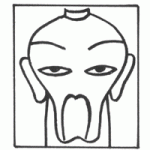The Path to Living Well: Cultivating a Sense of Spirituality
By Laura M. Turner
“Let us first be as simple and well as Nature ourselves.” ~Thoreau, Walden
Have you ever thought: “Wouldn’t it be great to live ‘well’?” Yet, through our often rushed and fully-packed schedules it’s easy to wonder what living well actually means. Is it about living “healthy”? Eating right to support your body? Is it about exercise? Managing stress?
The answer, indeed, is “yes” to all of these. However, before exploring what you can “do” to live well, let’s first take a look at who you are “being.” After all, it’s at the bottom of your being which creates the foundation for a healthy, fulfilling life.
How to decide who you are being? Well, most people already believe in a higher source, a higher power. But for our purposes, we’ll take it one step further. We’ll call this sense of “being” your own personal Nature. And, what’s important for a life of living well, is the connection you make to this inner Nature. The easiest way to do this… Develop your own personal belief system. Continue reading



